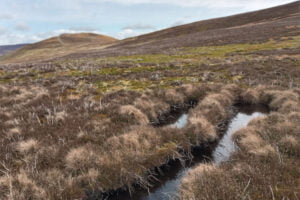
TEP helps landowners, businesses and developers reduce their carbon footprint and increase the amount of carbon locked up in soils, woodlands and habitats. We provide technical expertise in measuring habitat-based carbon and help formulate carbon sequestration and management plans. We work alongside building surveyors, sustainability consultants, carbon financiers, auditors, planning consultants and land agents to provide a bespoke carbon management service. With 25 years’ expertise in landscape management, ecology, arboriculture and soil survey, TEP’s specialism is management of carbon in the outdoor environment.
Our services for Landowners include:
– Soil and Habitat Carbon Audits and Management Plans
– Estate Management operational Carbon Audits and Management Plans
– Soil, peat, woodland and wetland surveys, mapping and greenhouse gas emission calculations
– Carbon literacy training for estate management teams
– Mapping and monitoring of carbon management plans, including baseline and post-intervention assessments
For Public and Third Sector Organisations:
– Audits of Carbon Stores held in open spaces and habitats
– Healthy Soil Strategies
– Providing the “outdoor” component of corporate net zero strategies and action plans
For Developers:
– Tree and woodland surveys and impact assessments to include carbon implications
– Landscape and habitat design including embodied carbon assessment
– Environmental Impact Assessment reports on peat, soils and habitat-based carbon, to IEMA standards
For Outdoor Leisure Operators:
– Soil and Habitat Carbon Audits and Management Plans
– Grounds maintenance audits and carbon reduction plans
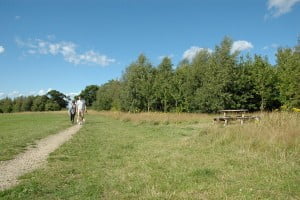
Our public green spaces, a critical component of green infrastructure and sustainable communities, can decline quickly without effective management by skilled professionals. Well managed, high quality green spaces offer places for recreation, improve property value, support healthy communities and offer habitats for a range of wildlife.
TEP’s Stewardship Team of Chartered Landscape Architects and Landscape Managers have a high level of expertise through long standing commissions from public and voluntary-sector bodies as well as commissions on one off developments.
We believe that practical, forward thinking landscape management requires planning at strategic and site specific scales. Our team provides professional services including policy development and broad-scale planning, feasibility studies, bespoke site management plans, and procurement and administration on site
We have developed bespoke software systems to facilitate integrated land management to suit the requirements of individual landholders. The systems map and record information covering landscape, arboriculture, ecology, land access, and contract management to enable efficient integrated estate management.
We carry out estate risk audits covering void property, waterside safety, trespass and tree safety. We then implement remedial works and bring estates and void property into good management. Our landowning clients value our services because they identify, manage and reduce risks. Currently we are managing estate risks nationwide from former barracks in Dover to a quayside in Berwick.
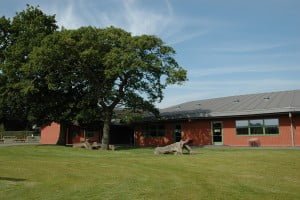
BREEAM sets standards for best practice in sustainable building design, construction and operation and is a widely recognised measure of a building’s environmental performance. Many new building developments now require that a BREEAM assessment, which includes the BRE Category of Land Use and Ecology, is undertaken. The Code for Sustainable Homes (CSH) is an environmental assessment method for rating and certifying the performance of new homes and offers credits for certain ecological credentials.
TEP’s ecologists are accredited to act as Suitably Qualified Ecologists, which is a requirement of the assessments. We evaluate the performance of new buildings and help maximise the ecological value, and number of credits, that can be obtained.
Recognising the unique requirements of BREEAM and CfSH we have a dedicated team who are on hand from design stage through to project completion. Our in-house landscape design and arboriculture professionals support our ecologists to provide comprehensive reports to support new developments. Over the past 5 years, we have carried out over 1000 BREEAM and CfSH assessments across the UK and we are on framework contracts with many of the major social housing providers and their delivery partner contractors.
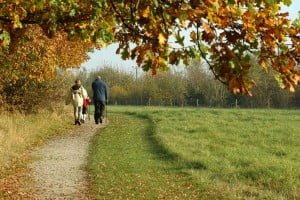
Green Infrastructure (GI) describes the network of natural spaces and corridors that intersperse and connect our cities, villages and towns. These areas provide multiple benefits to local communities, including recreational space, improved health and well-being, natural habitats for wildlife, and vital environmental services such as pollution control, water supply, fisheries and flood alleviation. GI planning requires an understanding and articulation of “ecosystem services” relevant to the study area.
TEP has very strong credentials in green infrastructure advocacy, strategy and planning. We specialise in developing GI plans that take account of environmental, economic and social priorities, and balance these to support a project or area holistically.
We work collaboratively brokering agreements and establishing consensus across a wide spectrum of stakeholders to create spaces that balance the needs of people, wildlife and habitats.
We have developed GI plans at a broad geographic scale (for example our work on the Cheshire and North-East Wales GI Framework) and at a very local scale (for example our action plan for the Flintshire Coast).
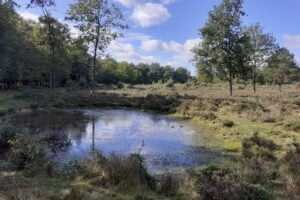
BNG is an approach to development that makes sure that habitats for wildlife are left in a measurably better state than they were before development. In England, BNG is mandatory following the Environment Act 2021. Development must deliver a BNG of 10%, resulting in more or better-quality natural habitat than there was before development. In Wales and Scotland, a policy-driven approach is taken, with Scotland considering a metric and Wales opting for a qualitative assessment of Net Benefits for Biodiversity.
TEP is a multi-disciplinary company and has been delivering BNG on a wide variety of projects for many years. BNG requires collaboration between ecologists, landscape designers and managers, arborists, GIS specialists and environmental planners; and TEP’s BNG team has all these skills in-house. We provide baseline habitat assessments, Statutory Metric calculations, landscape design to meet the mandatory 10%, Biodiversity Gain Plans, Habitat Management and Monitoring Plans (HMMP) and support for clients needing to secure off-site solutions through habitat banks.
TEP also supports landowners including private estates and Local Authorities to understand current biodiversity provision and opportunities for enhancement. Our strategy and feasibility studies start with a baseline habitat and condition assessment of existing land holdings; this can be completed through practical site assessment and/or by our bespoke desk-based HabiTEP system, when an understanding of large geographic areas is required. Once habitat baselines are understood we then explore opportunities to enhance existing biodiversity, working with clients and landowners to increase biodiversity provision whilst ensuring gains are realistic and achievable. Our BNG service is supported by cost models to understand biodiversity unit return against expected financial outlay over 30 years. Our BNG expertise also dovetails with our carbon assessment and water security services providing a holistic approach to environmental net gain.
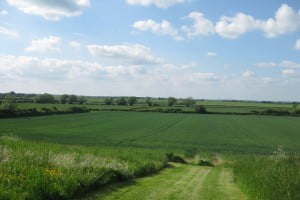
Landscape is about more than just how an area looks. The European Convention on Landscape describes it as “our living natural and cultural heritage, be it ordinary or outstanding, urban or rural, on land or in water”. Landscapes underpin our economy, support health and well-being and have unique qualities which contribute to the development of community identities and a sense of place.
TEP has extensive experience of undertaking Landscape and Visual Impact Assessments (LVIA). Through LVIAs, we are able to work with our clients to address landscape and visual impact issues at an early stage, ensuring proposals work within the landscape setting, deal effectively with any constraints and are visually acceptable. A project which works with the landscape character of the area is more likely to be acceptable at a local level and to local planning authorities.
Working with our photomontage and visualisation experts, our landscape architects are able to advise on appropriate design and mitigation measures; often leading to appearances at public inquiries to present detailed evidence on development proposals.
TEP also carries out Landscape Character Assessments (LCA) at a Local Authority level, identifying the unique qualities and features of an area which contribute to local distinctiveness. Our LCAs are used in Local Plans, Transport Strategies and Supplementary Planning Guidance to improve the design quality of new development and to promote good countryside management.
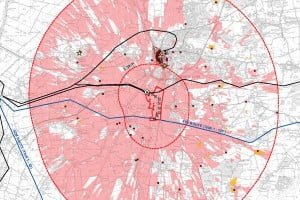
We use Geographic Information Systems (GIS) to describe our world in terms of its spatial relationships, patterns and trends. This applies as much to our social and built environment as it does to the natural environment for which GIS was first developed. GIS Mapping and Analysis is an enormously powerful tool, which can provide insight and clarity to the world around us. GIS can be used for strategic assessments, identifying priorities and needs within an area, helping decision-makers and focusing investment. Maps are also a vital visual aid in community and stakeholder engagement.
TEP has always sought to develop innovative mapping and GIS solutions for clients on a range of projects including Green Infrastructure, Risk Management, Land Audits, Water Safety Assessments and Green Space Assessments. TEP has a large and dedicated GIS Team with experience and expertise using ArcGIS, QGIS, MapInfo, Postgres, PostGIS and Open Source data sources to analyse and illustrate environmental, social and economic data and trends. GIS is utilised throughout our services and projects, providing a powerful tool for map production, spatial analysis, web mapping, integrated management systems and mobile field data capture.
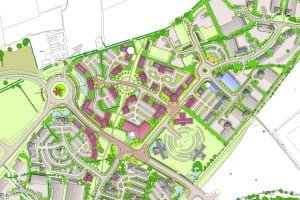
TEP integrates environmental, social and economic aspirations in its Masterplans and urban design schemes to deliver sustainable solutions to complex systems. We acknowledge that creating new spaces for leisure, business and housing involves balancing a number of interconnected and sometimes competing priorities. There is a need to shape the setting of a town or development to create a sense of order, place, continuity and identity. We also recognise the need to design for resilience to future uncertainties such as climate change and economic instability.
TEP’s track record in developing area masterplans, development frameworks, public realm strategies and design guides illustrates this approach. We work closely with clients and engage local stakeholders, using a variety of tools and techniques, to develop high quality designs which achieve the necessary approvals to go on to successful implementation.
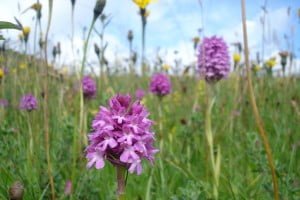
TEP’s ecology team understands the importance of ecosystems and the services they provide to society. Through surveying and understanding individual ecological systems, TEP can identify the potential ecological constraints to a development. We also seek realistic, cost-effective solutions to benefit both our clients and biodiversity.
We provide advice on how constraints can be mitigated, or even made into a valuable feature. Our design teams can also produce detailed drawings to illustrate this. We recognise the unique nature of each site and ensure our approach reflects this.
We work on a full range of developments from housing, commercial and industrial schemes to major infrastructure projects. Often this requires us to present surveys, assessments and mitigation schemes to regulators and at public inquiries and hearings.
Our 30 in-house ecologists are all members of the Chartered Institute of Ecology and Environmental Management (CIEEM) and adhere to CIEEMs strict guidelines both in their technical work and their professional conduct. We offer high quality habitat assessments for all stages of a development proposal. We are also licensed by Natural England and Natural Resources Wales to undertake terrestrial and freshwater protected species surveys. This includes all the regularly encountered species, such as great crested newts, bats, otter, dormice, badgers, water voles and birds.
Our ecology team is supported by a network of professional sub-consultants, who are also CIEEM members. They also provide detailed habitat and botanical survey and habitat enhancement, creation, restoration and management skills.
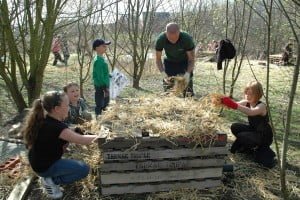
Delivering sustainable solutions requires the active involvement and the support of a number of different stakeholders; TEP has considerable skills and experience in identifying, and engaging with, a large variety of interested parties, groups and organisations. Our priority is to develop and maintain good relationships, creating the environment for effective two way dialogue.
We use a range of tools and techniques to support this process, tailored for individual stakeholder groups within each project. We do not apply a “one size fits all” approach. We work with stakeholders at a number of levels; from individuals, such as local residents, to focus groups, through to large scale public events.
We are experienced in dealing with contentious development projects and can address stakeholder concerns and expectations throughout the process, which can sometimes be over several years.
In addition to fostering good relationships, we use other methods to engage stakeholders, such as tailored questionnaires, design competitions, leaflets and exhibitions. For all of these, we produce the visual materials ourselves, using high quality graphics programmes.
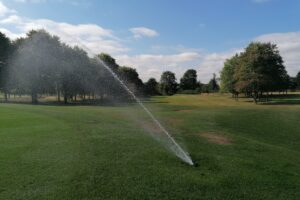
Water is a vital resource. With water demand set to increase, and availability to decrease, water security is becoming an increasingly important design consideration for any form of development, facility or landscape.
TEP has considerable experience in developing water security solutions for a wide variety of clients. Our work ranges from designing water sensitive landscape plans, integrating Sustainable Drainage Systems (SuDS) into new masterplans and retro-fitting nature based solutions into existing developments. We specialise in the preparation of long-term water security strategies and water management plans for agricultural, horticultural and sporting facilities.
Our feasibility studies start with an initial review of a site’s existing water supply, water usage and drainage infrastructure. We then explore issues and options for water sourcing, irrigation and storage, culminating in a site wide masterplan, which may also consider other factors such as biodiversity gain, carbon, amenity and resilience. Our masterplans can be used to inform cost plans, followed by technical detailing and construction.

TEP takes a holistic approach to design, with Landscape Architects working closely with other in-house professionals to produce designs that are both sensitive to the environment and considerate of long-term management. We have a creative, dynamic and skilled team committed to producing distinctive, innovative and sustainable landscape designs.
Our design services include all aspects of hard and soft landscape, including planting design, habitat creation, construction detailing, public art coordination, project management, contract administration and CDM.
In recent years we have undertaken a wide range of landscape design projects within residential and commercial development, school grounds, historic landscapes, parks and open spaces.

‘Historic environment’ is the term used to describe all of the surviving physical remains of past human activity, encompassing built heritage, the historic landscape, and buried archaeology. Public interest in, and concern for, the historic environment has never been greater and at TEP we understand the value of the historic environment for its contribution to the quality of life to this and future generations.
Our historic environment team provides professional advice on how constraints can be identified and mitigated. We tailor our response to the needs of each unique project and can provide any level of support including feasibility appraisals, heritage statements, EIA, consultancy, design and commission of archaeological work, identification of heritage benefits, and expert witness services including appearing at public inquiries.
We produce conservation plans for historic parks, gardens and landscapes. These build on comprehensive site survey and background research to ascertain the significance of the asset. TEP can provide expert advice on appropriate repairs, interventions and development in association with our landscape management and design teams. We regularly work on Heritage Lottery Funded schemes and assist with grant applications and project management.
Our team has worked on a large range of developments including housing, commercial and industrial schemes as well as renewable energy and large scale infrastructure projects. Our historic environment and archaeology team is a Registered Organisation with the Chartered Institute for Archaeologists.
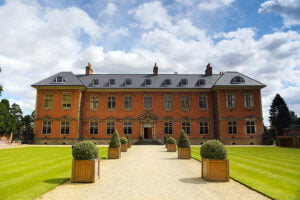
Built heritage represents an important resource that underpins our relationship with our towns, cities and rural landscape. It is also vital to the economic and social success and regeneration of these areas.
Working with historic buildings requires specialist knowledge and experience, as well as an understanding of planning and conservation issues. Recording of historic buildings can inform property management and conservation as well as decisions relating to development through the planning process, and can help to promote the understanding and appreciation of the history and significance of a building and its setting.
A building record examines a structure’s physical form, fabric, and decorative features, identifying evidence for alterations and relating these to phases of development, and highlighting features which contribute to the building’s significance. The record will also include a desk-based assessment which draws upon archival map and documentary evidence in order to place the building into its local or national historic context.
Site surveys will include photographic recording, production of measured or sketched drawings, written notes, and can also include photogrammetric surveys. Recording may also call upon external specialists such as conservators, art historians, and dendrochronology specialists. A summary report will be produced which outlines the findings and conclusions of the work and may make, where relevant, recommendations for further work or material sampling. In most cases, the final record will be deposited at the relevant County archive or museum.
TEP is a registered member of the Chartered Institute for Archaeologists and all of our work is undertaken to the highest standard and in accordance with CIfA guidelines and relevant Historic England, CADW and Historic Scotland guidance documents. Our team has experience on a wide range of sites and building types including urban and industrial, military and infrastructure, rural and agricultural, as well as ecclesiastical and educational buildings.

Visualisations are powerful design and communication tools, useful for optioneering, consultation, inquiry and marketing. Each client’s project is unique, so we choose the most appropriate approach and software package from Autodesk 3D Studio Max, V-Ray, SketchUp and Photoshop to bring the right level of graphic detail and realism required.
We are able to offer a range of visualisation styles, ranging from wireframes and block models through to realistic verified photomontages. We commonly work on environmental impact assessments, consultations, public inquiries and renderings for marketing purposes.
We provide an end-to-end service for verified photomontages, including photography, site surveying, site modelling, final images and presentation layouts.
As landscape architects, we specialise in time-sequence visualisations where we present how the landscape planting for a new development would appear on Day One and grow over the years.
Our team also provides graphics support in the production of environmental reports; this includes desktop publishing, 2D or 3D schematic illustrations and rendered plans.
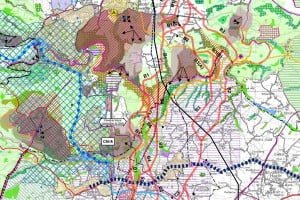
Our RTPI qualified team at TEP has significant experience in guiding development proposals, from the feasibility stage through to the discharge of planning conditions. We give strategic advice on proposals, manage consultations and prepare applications for planning consent. This may include the production of supporting materials such as Design and Access Statements. We also provide expert evidence on planning issues at public inquiries and appeals, and underpin all of these processes with our stakeholder engagement services.
TEP is especially skilled in preparing planning applications for developments which may have significant effects on the environment. Our planning team includes experts in Environmental Impact Assessment and Sustainability Appraisal and, supported by our urban design specialists, landscape architects and ecologists, can provide a broad spectrum of advice on the likely environmental and sustainability effects of proposals.
TEP has co-ordinated numerous large projects and delivered consents for residential and mixed use schemes; roads; power generation and transmission projects. We work nationally and overseas and have a strong record with private and public sector clients.
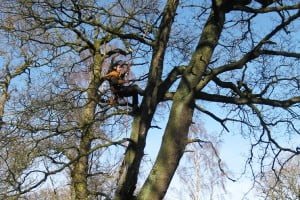
The potential contribution of trees to the urban environment and development proposals is significant. Their role in green infrastructure is considerable, providing habitats and wildlife corridors. They also provide important environmental services through absorption of carbon dioxide, the provision of shade and improvements to air quality. There are also many economic and societal benefits to be gained from trees. Not surprisingly, trees are also a “material consideration” in Planning Law.
TEP has a team of consultants with expertise in managing trees in rural and urban landscapes offering a range of professional services in accordance with the British Standard (BS5837:2012) for trees in relation to design, demolition and construction works. Our team undertakes detailed surveys and inspections of trees, woodlands and hedgerows offering comprehensive advice for our clients. Recommendations for tree work are specific to local ecological features and future land use. We also provide detailed reports to accompany our assessments and survey work, which provide the necessary information to accompany planning applications and to discharge planning conditions.
We are experienced in a wide range of projects concerning construction close to trees. Reaching resolution regularly involves consulting with developers, architects, structural engineers and Local Authorities to develop innovative and specialised design solutions.
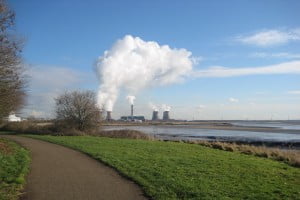
Environmental Impact Assessment (EIA) assesses the effects that certain new developments may have on the environment and recommends actions to enhance environmental benefits and reduce adverse effects. Whilst large scale regeneration projects, housing developments, new roads and electricity connections are necessary for the economy and society, TEP recognises that so too is a quality environment.
TEP is an Institute of Environmental Management and Assessment (IEMA) registered Environmental Impact Assessor with a Quality Mark for commitment to excellence. We have extensive experience in managing the EIA process, regularly working in multi-disciplinary teams of ecologists, engineers, designers, surveyors and planners.
We coordinate the entire EIA process, from screening opinions to the production of the Environmental Statement which will accompany a planning application. We manage the range of specialists required to deliver an EIA and engage with all of the relevant stakeholders. Our priority is to identify all of the potential environmental effects from a proposed development and provide innovative and practical measures to reduce the effects.
Our team includes experts in Sustainability Appraisal, Strategic Environmental Assessment and Habitats Regulation Assessment, allowing us to carry out high and mid-level appraisals of plans, strategies and major infrastructure schemes.








